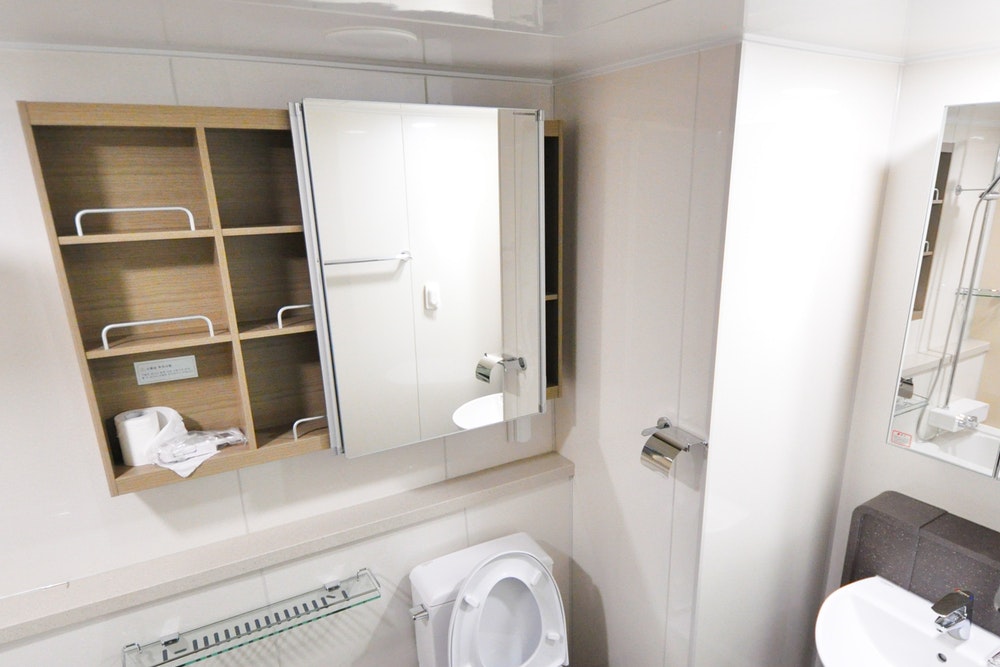Using the toilet can be dangerous for seniors with limited mobility, reduced strength and health problems.
Even those who are still independent to a high degree may find it difficult to navigate the small bathroom space, sit down on the toilet seat and stand up when they are done.
Routine habits like wiping can be troublesome too.
When assisting someone to use the toilet what should you be considering? How to wipe an elderly person? These are the questions you may ask.
If you are assisting an elderly person to use the toilet, safety is the most important thing; safety for the senior and safety for you as well.
It’s easier than you think to hurt yourself while helping them sit down or stand up.
It’s also important that you are both comfortable with the situation.
Here are some helpful tips and some things to consider when helping an elderly person use the toilet.
Get a Raised Toilet Seat
A normal toilet seat may be too low to use comfortably. Even with your help, they’ll have difficulty sitting down and standing up.
A raised toilet seat makes bathroom visits so much easier, and safer.
There are different types of raised toilet seats. Some are freestanding while others attach to the existing toilet seat (usually no tools needed for installation).
Get one of those raised toilet seats with bars or armrests. These are good if your elderly family member want to retain some independence. They can sit and stand on their own.
If the toilet seat has no bars, have a support bar installed near the toilet.
Use a Commode
For bedridden seniors or those who cannot use the normal toilet, a commode is a great choice. You can set it up by their bedside or in the room where they spend most of their time.
A commode is a chair with a potty at the bottom. In many cases, the potty is hidden under the chair’s bottom.
Make sure the commode is high enough for easy and safe use.
Staying Safe
If they have a lot of difficulty walking to the toilet, a bedside commode is really the best and safest option.
Trying to force them to use the toilet can cause injury for them and even you.
If their mobility is still good, help them get to the toilet safely.
You may need to help them undo buttons on their clothing or remove some of their clothing.
Make sure they are safely seated on the toilet or commode before you leave them alone to provide some privacy.
Ask them to call you when they are done. If they have trouble speaking, a simple bell near the toilet can provide an easy way to get your attention.
How To Wipe An Elderly Person

Some seniors are able to wipe on their own. Just make sure that there is enough toilet paper and that it’s within easy reach.
You can even unroll several lengths and leave them nearby before you go.
If your elderly family member or friend cannot wipe on their own, here’s how to help them.
- Put on a pair of gloves.
- Help them stand up. They should stand up mostly on their own with you just providing balance and support. Do not pull forcefully on their arms or torso.
- Wipe them gently with toilet paper. Your care provider may also recommend following that up with wet wipes. Remember that for a female senior, you wipe from the front towards the back to prevent infection.
- Make sure they are well supported as you wipe them. Here’s where a raised toilet seat with bars comes in handy. Any kind of sturdy support will do as well.
- Removes gloves, wash your hands and help them back to the bed or chair.
Additional Tips
If your elderly family member has poor eyesight, get a brightly coloured toilet seat that is easy to spot.
For those with dementia, it might be difficult to tell them your intentions – that is, you want to help them go to the toilet.
You may need to use pictures of a toilet or commode or someone sitting on the toilet to help them understand.
Finally, show them respect and provide as much privacy as possible. Don’t rush them or excoriate them if they make a mistake or a mess.
If you feel that you don’t have the capacity to take care of them, find a home care nurse or consider taking them to a care home.




